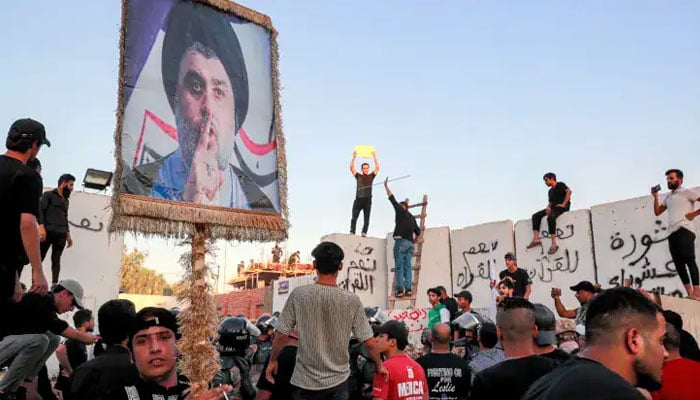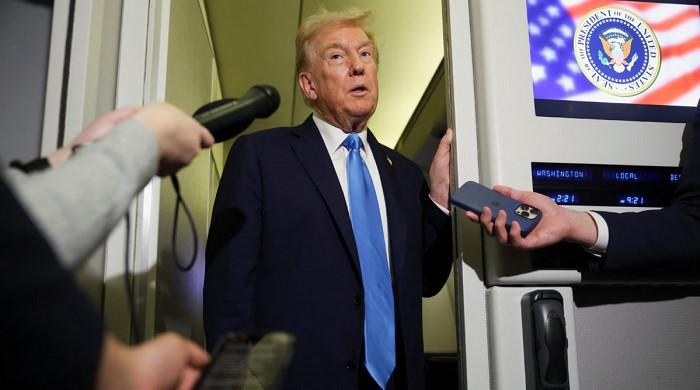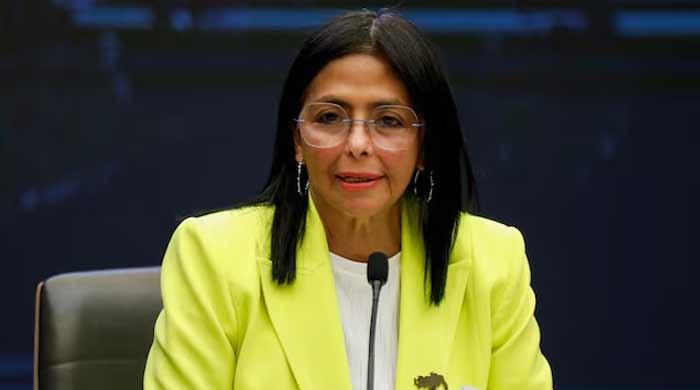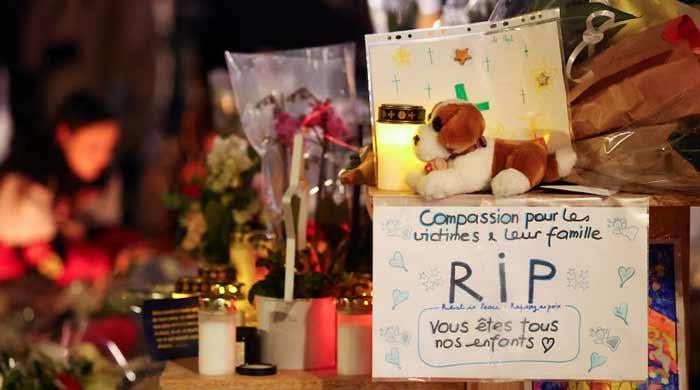Iraq expels Sweden's ambassador over Quran row
Iraqi PM said decision was prompted by Sweden's repeated permission for desecration of Holy Quran, insulting Islamic sanctities
July 21, 2023

Iraq has expelled the Swedish ambassador following a series of protests sparked by the desecration of the Quran in Stockholm on Thursday.
The tensions between the two nations escalated after a man, identified as Salwan Momika, not only burnt pages of Islam's holy book in Sweden but also stomped on it outside the Iraqi embassy.
The recent incident led to a chaotic pre-dawn attack on Sweden's Baghdad embassy by hundreds of outraged Iraqis. The situation intensified when the Iraqi government condemned the attack and retaliated by expelling Sweden's ambassador. Furthermore, Iraq vowed to cut ties with Sweden and suspended the operating license of the Swedish telecom giant Ericsson.
Iraqi Prime Minister Mohamed Shia al-Sudani expressed his displeasure, saying, "The decision was prompted by the Swedish government's repeated permission for the burning of the Holy Quran, insulting Islamic sanctities, and the burning of the Iraqi flag." The burning of religious symbols and books in Sweden by far-right and other activists citing free speech protections has sparked protests in European countries in the past.
The situation resulted in a night of chaos at the Swedish embassy in Baghdad. Protesters, mainly followers of influential Shiite Muslim cleric Moqtada Sadr, stormed the embassy, clashed with riot police, and set buildings ablaze. Amid the unrest, Iraq's government took around 20 protesters into custody.
Sweden's Foreign Minister Tobias Billstrom strongly condemned the attack on the embassy, describing it as "completely unacceptable." He emphasised that under the Vienna Convention, Iraqi authorities had an obligation to protect diplomatic missions and personnel.
Countries such as Iran, Turkey, Qatar, and Saudi Arabia have joined the chorus of condemnation against Sweden for allowing the Quran burning protests to proceed. Additionally, the United States, the United Kingdom, and the European Union expressed their concern, deeming it unacceptable that Iraqi security forces did not prevent the attack on the Swedish embassy in Baghdad.
The Quran burning controversy has garnered attention from Muslim-majority countries and even Pope Francis, who condemned the actions of Salwan Momika. The incident has also put the spotlight on Sweden's freedom of speech laws, as the courts overruled the initial rejection of applications to burn the Quran.
The situation remains tense as Iraq asserts its stance on the matter, and the international community watches closely for further developments between Iraq and Sweden.









